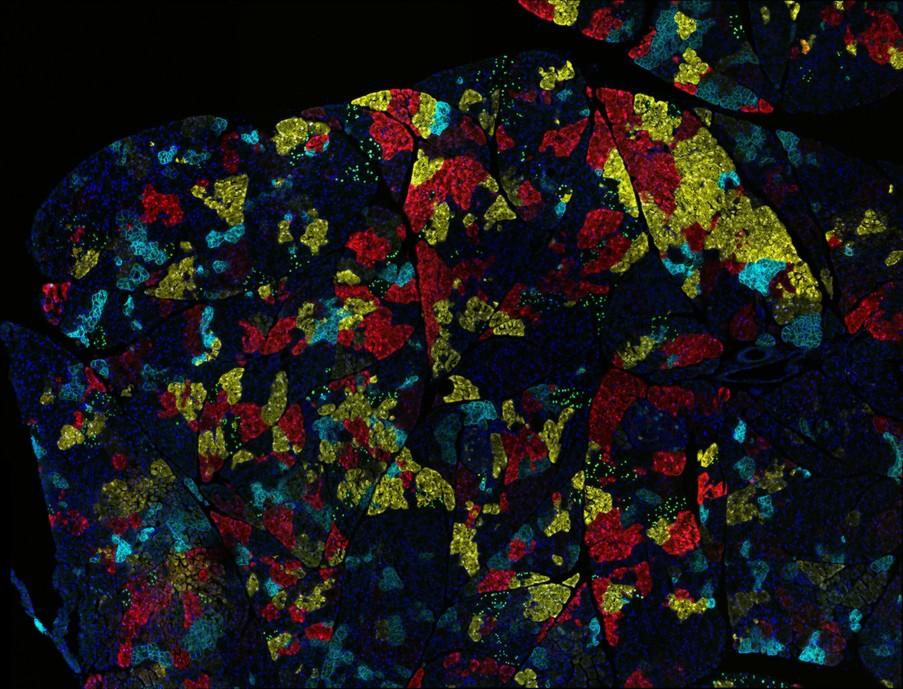TBEL News
Publication Highlights
Using single-cell RNA sequencing and molecular pathology, researchers supported by the Johns Hopkins University TBEL Center, Graham et al. found that MYC activation in neoplastic cells reprograms the prostate cancer microenvironment. The findings showed that increased MYC signaling creates a pro-inflammatory microenvironment at the precancerous stage, which transitions to an immunosuppressive state during the progression to invasive carcinoma.
TBEL investigators recently discussed the hallmarks of precancers.
Researchers supported by the Fred Hutch TBEL Center generated a senescence associated secretory phenotype atlas of human colon fibroblasts that revealed a core senescent profile that may play a role in shaping the microenvironment. The findings provide insights into potential drivers of senescence-associated diseases, such as colorectal cancer.
In a study supported by the MD Anderson TBEL Center, Mahadevan et al. showed that mutant KRAS inhibition with MRTX1133 reprograms the microenvironment to promote anti-tumor immunity in preclinical models of pancreatic cancer. They further showed that immunotherapy synergizes with MRTX1133 treatment to suppress pancreatic cancer progression. According to Dr. Anirban Maitra (a co-lead investigator of the study), “Leveraging the immune system by combining KRAS inhibitors with immunotherapy was able to bring about the full effects of these drugs and provide the best possible survival benefits in our models.”
TBEL Digital Media
Learn more about the program at the TBEL Website.
DCB Contacts for TBEL
For additional information about TBEL, please contact Dr. Elizabeth Woodhouse or Dr. Rihab Yassin.
Funded Projects
TBEL Research Projects (U54s)
| Institution | Principal Investigator(s) | Center Title |
|---|---|---|
| Houston Methodist Research Institute | Keith Syson Chan, Dan Theodorescu | The stromal microenvironment as a co-organizer of bladder carcinogenesis and progression |
| Fred Hutchinson Cancer Center | William M. Grady, Neelendu Dey, Richard B.Halberg | Understanding adenoma progression: Interplay among tissue microenvironment, clonal architecture, and gut microbiome |
| John Hopkins University | Angelo M. De Marzo, Srinivasan Yegnasubramanian | Prostate inflammatory lesions as a proving ground for development of aggressive prostate cancer |
| MD Anderson Cancer Center | Anirban Maitra, Marina Pasca Di Magliano | Tumor microenvironment crosstalk drives early lesions in pancreatic cancer |
| Vanderbilt University Medical Center | Martha J. Shrubsole, Ken S. Lau |
Shaping of the microenvironment in colonic pre-cancer by epithelia and microbiota |
TBEL Coordinating and Data Management Center (U24)
| Institution | Principal Investigator(s) | Center Title |
|---|---|---|
| MD Anderson Cancer Center | Ying Yuan, Liang Li | Coordinating and Data Management Center for Translational and Basic Science Research in Early Lesions |
